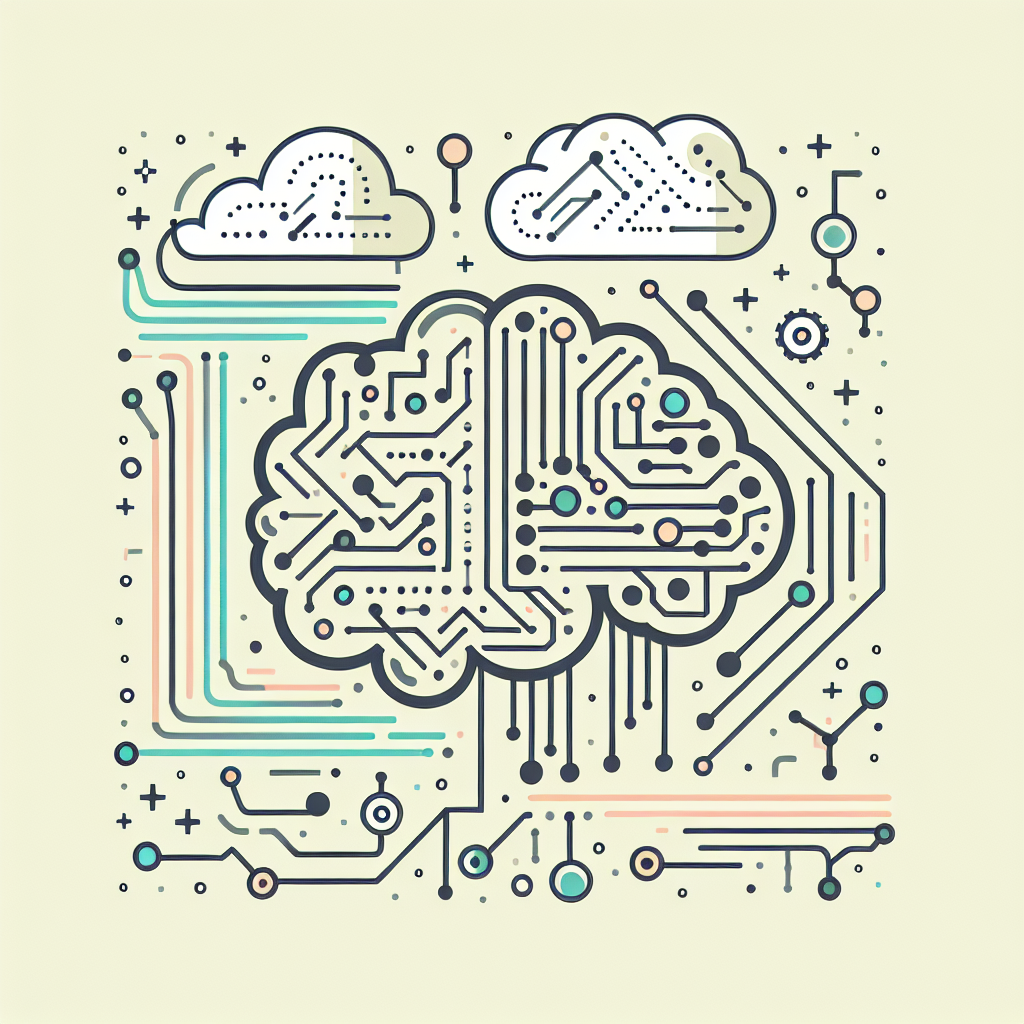Artificial Intelligence (AI) algorithms have become an essential tool for optimizing cloud service performance. As cloud computing continues to grow in popularity, businesses are looking for ways to improve the performance and efficiency of their cloud services. AI algorithms offer a solution to this problem by analyzing data, predicting patterns, and making recommendations to enhance cloud service performance.
AI algorithms can be used in various ways to tune cloud service performance. They can help identify bottlenecks in the system, optimize resource allocation, and predict future performance trends. By using AI algorithms, businesses can improve the scalability, reliability, and cost-effectiveness of their cloud services.
Types of AI Algorithms for Cloud Service Performance Tuning
1. Machine Learning Algorithms: Machine learning algorithms are a subset of AI algorithms that use statistical techniques to enable computers to learn from data and make predictions. These algorithms can be used to analyze historical data, identify patterns, and make recommendations for optimizing cloud service performance. For example, machine learning algorithms can be used to predict future workload patterns and adjust resource allocation accordingly.
2. Neural Networks: Neural networks are a type of machine learning algorithm inspired by the human brain. They consist of interconnected nodes that process information and make decisions based on patterns in the data. Neural networks can be used to optimize cloud service performance by analyzing large amounts of data and identifying hidden patterns that can improve resource allocation and workload management.
3. Genetic Algorithms: Genetic algorithms are a type of optimization algorithm inspired by the process of natural selection. They work by generating a population of potential solutions, evaluating their fitness, and selecting the best solutions for further optimization. Genetic algorithms can be used to tune cloud service performance by optimizing parameters such as resource allocation, workload distribution, and task scheduling.
4. Reinforcement Learning: Reinforcement learning is a type of machine learning algorithm that learns by interacting with an environment and receiving feedback based on its actions. It can be used to optimize cloud service performance by continuously learning and adapting to changing workload patterns. For example, reinforcement learning algorithms can be used to dynamically adjust resource allocation based on real-time performance metrics.
Benefits of AI Algorithms for Cloud Service Performance Tuning
1. Improved Scalability: AI algorithms can help businesses scale their cloud services more effectively by predicting future workload patterns and adjusting resource allocation accordingly. This can help prevent performance bottlenecks and ensure that cloud services can handle increasing demands.
2. Enhanced Reliability: By using AI algorithms to optimize cloud service performance, businesses can improve the reliability and availability of their services. AI algorithms can help identify potential failures before they occur and proactively address them to minimize downtime.
3. Cost-Effectiveness: AI algorithms can help businesses optimize resource allocation and reduce unnecessary costs associated with over-provisioning. By accurately predicting workload patterns and adjusting resource allocation accordingly, businesses can minimize waste and maximize the efficiency of their cloud services.
4. Faster Time-to-Market: AI algorithms can help businesses deploy new cloud services faster by automating performance tuning and optimization tasks. This can help businesses stay competitive in a fast-paced market by quickly adapting to changing customer demands and requirements.
FAQs
Q: How can AI algorithms improve cloud service performance?
A: AI algorithms can improve cloud service performance by analyzing data, predicting patterns, and making recommendations for optimizing resource allocation, workload management, and task scheduling.
Q: What are some common challenges in tuning cloud service performance?
A: Some common challenges in tuning cloud service performance include identifying performance bottlenecks, optimizing resource allocation, predicting workload patterns, and ensuring reliability and scalability.
Q: How can businesses implement AI algorithms for cloud service performance tuning?
A: Businesses can implement AI algorithms for cloud service performance tuning by collecting and analyzing data, training machine learning models, and integrating AI solutions into their cloud infrastructure.
Q: What are the potential risks of using AI algorithms for cloud service performance tuning?
A: Some potential risks of using AI algorithms for cloud service performance tuning include algorithm bias, data privacy concerns, and the need for ongoing monitoring and maintenance of AI solutions.
In conclusion, AI algorithms offer a powerful solution for optimizing cloud service performance. By leveraging machine learning, neural networks, genetic algorithms, and reinforcement learning, businesses can improve the scalability, reliability, and cost-effectiveness of their cloud services. With the right implementation and monitoring, AI algorithms can help businesses stay competitive in a rapidly evolving market and deliver high-performance cloud services to their customers.

